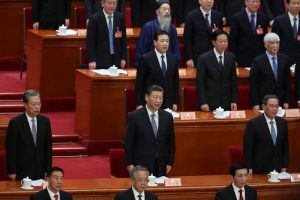(ATF) China’s central bank has issued 30 billion yuan ($4.23bn) of bills in Hong Kong in a sale tha attracted bids equal to almost three-times their face value.
The People’s Bank of China said it had sold 20bn yuan of three-month 1.77% notes and 10bn yuan of one-year 1.78% notes on Thursday.
The issuance was well-received by investors in offshore markets of many countries and regions in Europe, North America and Asia, and was oversubscribed by 80bn yuan, 2.7 times the issue amount, the PBoC said.
Since November 2018, the PBoC has established a regular mechanism for issuing bills in Hong Kong. The move helps to enrich yuan-investment products with high-credit ratings in Hong Kong, offer more yuan liquidity management tools, improve the yield curve of yuan bonds and advance the yuan’s internationalisation, the bank added.
Meanwhile, Fitch Ratings has been granted a licence to enter China’s credit-rating market, as part of the country’s latest step to open up its financial markets, the People’s Bank of China (PBOC) said in a statement Thursday.
READ MORE: Time for diversification into Chinese bonds
READ MORE: China to float new ‘blue bonds’ for better oceans
The central bank’s operations office has registered the US firm’s wholly owned subsidiary, while the National Association of Financial Market Institutional Investors has accepted the registration of the subsidiary to conduct certain bond rating business in the interbank bond market, said the statement.
Fitch Ratings is only the second foreign credit rating agency to be granted permission to enter the Chinese market; S&P Global was the first, last year.
Opening the credit rating sector is “an important part” of China’s financial liberalization, which the central bank said it will continue to develop.
The PBoC also vowed to guide credit rating agencies to play a bigger role in defusing financial risks and improving the financing environment of private and small businesses.
· China’s fixed-asset investments declined 10.3% year-on-year to 13.68 trillion yuan ($1.93tn) in the first four months, according to figures Friday by the National Bureau of Statistics. The decline narrowed by 5.8 percentage points compared with the the first three months.
























